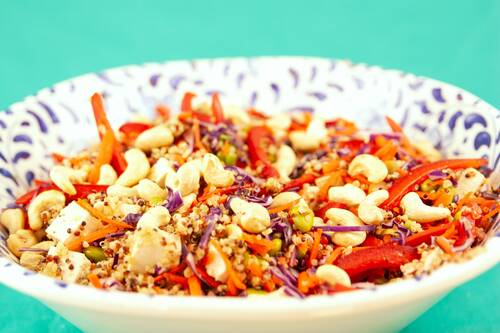MedicalResearch.com Interview with:
Kristen M. Beavers PhD, MPH, RD
Assistant Professor, Department of Health and Exercise Science
Department of Biostatistical Sciences
Wake Forest School of Medicine
Winston-Salem, NC
MedicalResearch.com: What is the background for this study? What are the main findings?
Response: Weight loss recommendation for older adults with obesity is controversial, in part because overall weight loss is accompanied by loss of muscle and bone, which may exacerbate age-related risk of disability and fracture. Identification of interventions that can preserve muscle and bone while promoting fat loss should maximize cardiometabolic benefit, while minimizing potential harm to the musculoskeletal system.
This randomized controlled trial was originally designed to test whether a higher protein, nutritionally complete meal plan could preserve lean mass and mobility in older adults undergoing a six month intentional weight loss program. Four publications have resulted from this study: * “Effect of an Energy-Restricted, Nutritionally Complete, Higher Protein Meal Plan on Body Composition and Mobility in Older Adults with Obesity,” Journals of Gerontology: Medical Sciences, published online in advance of print June 21, 2018 * “Effect of a Hypocaloric, Nutritionally Complete, Higher-Protein Meal Plan on Bone Density and Quality in Older Adults With Obesity,” American Journal of Clinical Nutrition, published online in advance of print Jan. 9, 2019 * “Effect of Intentional Weight Loss on Mortality Biomarkers in Older Adults With Obesity,” Journals of Gerontology: Medical Sciences, published online in advance of print Aug. 20, 2018 * “Effects of a Hypocaloric, Nutritionally Complete, Higher Protein Meal Plan on Regional Body Fat and Cardiometabolic Biomarkers in Older Adults with Obesity,” Annals of Nutrition and Metabolism, published online in advance of print Feb. 11, 2019
Across the four publications, we found that:
* Participants lost about 18 pounds, most of it fat (87 percent), and preserved muscle mass. The control group lost about half a pound.
* Even when participants lost weight, they maintained bone mass. In fact, trabecular bone score, a measure of bone quality which predicts fracture risk, seemed to improve.
* Fat was lost in the stomach, hips, thighs and rear, which is important for preventing or controlling cardiometabolic diseases such as diabetes and stroke.
* Participants’ score on the Healthy Aging Index, which measures biomarkers that predict mortality and longevity, improved by 0.75 points.
(more…)








